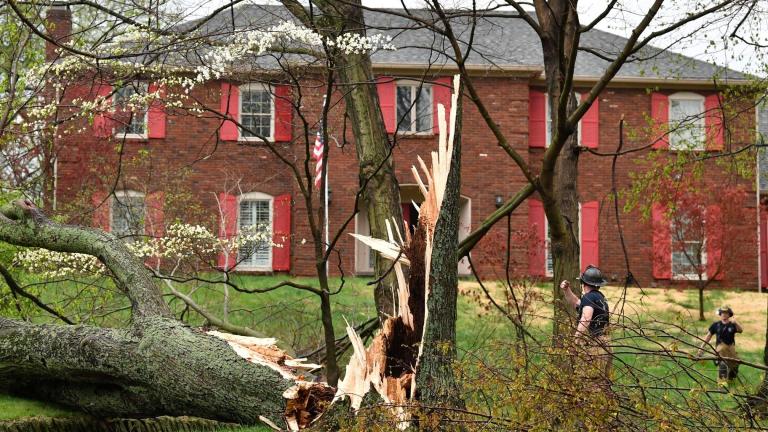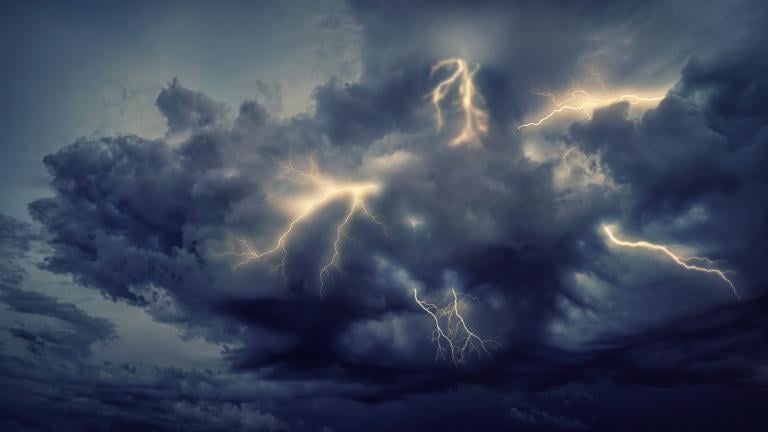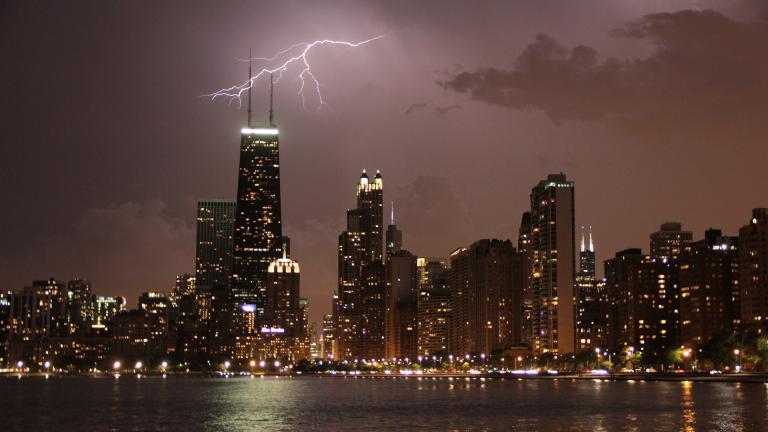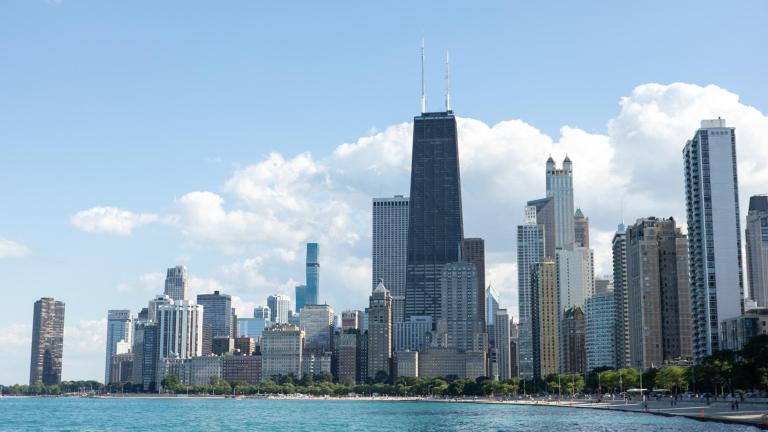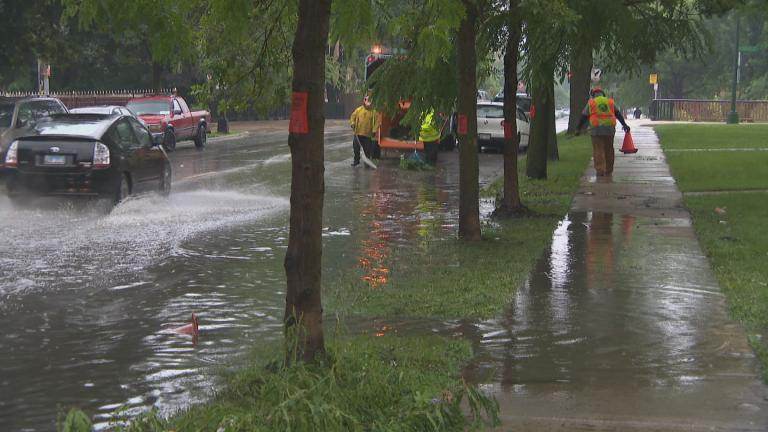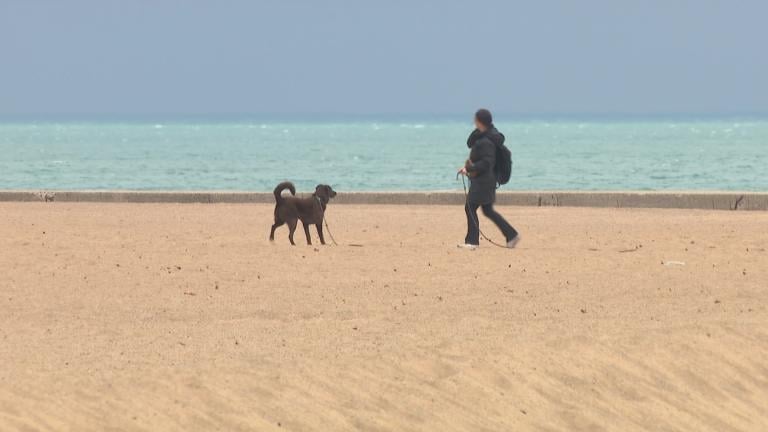 February 2024 was the warmest on record in Chicago. The lakefront seen from the Museum Campus, Feb. 27, 2024. (Patty Wetli / WTTW News)
February 2024 was the warmest on record in Chicago. The lakefront seen from the Museum Campus, Feb. 27, 2024. (Patty Wetli / WTTW News)
It’s official, Chicago: February 2024 was the warmest in 153 years of recording keeping.
According to the National Weather Service, Chicago’s average temperature of 39.5 degrees edged out the former record for February of 39 degrees set back in 1882 and represents a nearly 11-degree departure from the normal average of 28.8 degrees.
The month also set a record for average maximum temperature of 49.2 degrees, downright balmy for February and close to 15 degrees above normal.
The other big story was the lack of snow, which had been anticipated in this El Niño year. Chicago’s official weather station at O’Hare International Airport measured just 1.2 inches of snow, well below the norm of 10.7 inches.
Before declaring this year’s statistics proof of the end of wintry February as we know it, it’s worth pointing out that in the past 10 years, Chicago has experienced two of the 10 coldest Februarys in history, and five of the 10 snowiest Februarys have occurred in the last 15 years.
Nor is unseasonable warmth a 21st century phenomenon. Of the top 10 warmest Februarys in Chicago history, three were recorded in the late 1800s.
Which is why scientists are careful to separate variability from trends.
“You know, we’re in an El Niño year. And in our region what that means, we have warmer or above normal temperatures, and it means that we have drier conditions as well,” said Alisa Young, a weather and climate scientist with the National Oceanic and Atmospheric Administration’s Great Lakes Environmental Research Laboratory.
Great Lakes ice cover is one of the indicators NOAA monitors daily, for example. This season’s cover — ice season typically runs from late November to late April — hit historic lows in mid-February, but that doesn’t mean next year will see more of the same, she said.
“It’s important for people to understand the global system is complex. There are a lot of different factors that are influencing this season,” said Young. “We are going to have years where we have some very low ice coverage across the Great Lakes. That is to be expected. We’ve had years, as recently as 2019, where we had a record high amount of ice coverage across the Great Lakes. It varies.”
That said, Young added, “It is definitely worth taking note whenever you have a record. I think the issue around records is if you’re seeing a lot of records being broken and that is sustained over multiple timelines.”
And NOAA has observed sustained changes in ice cover, she said.
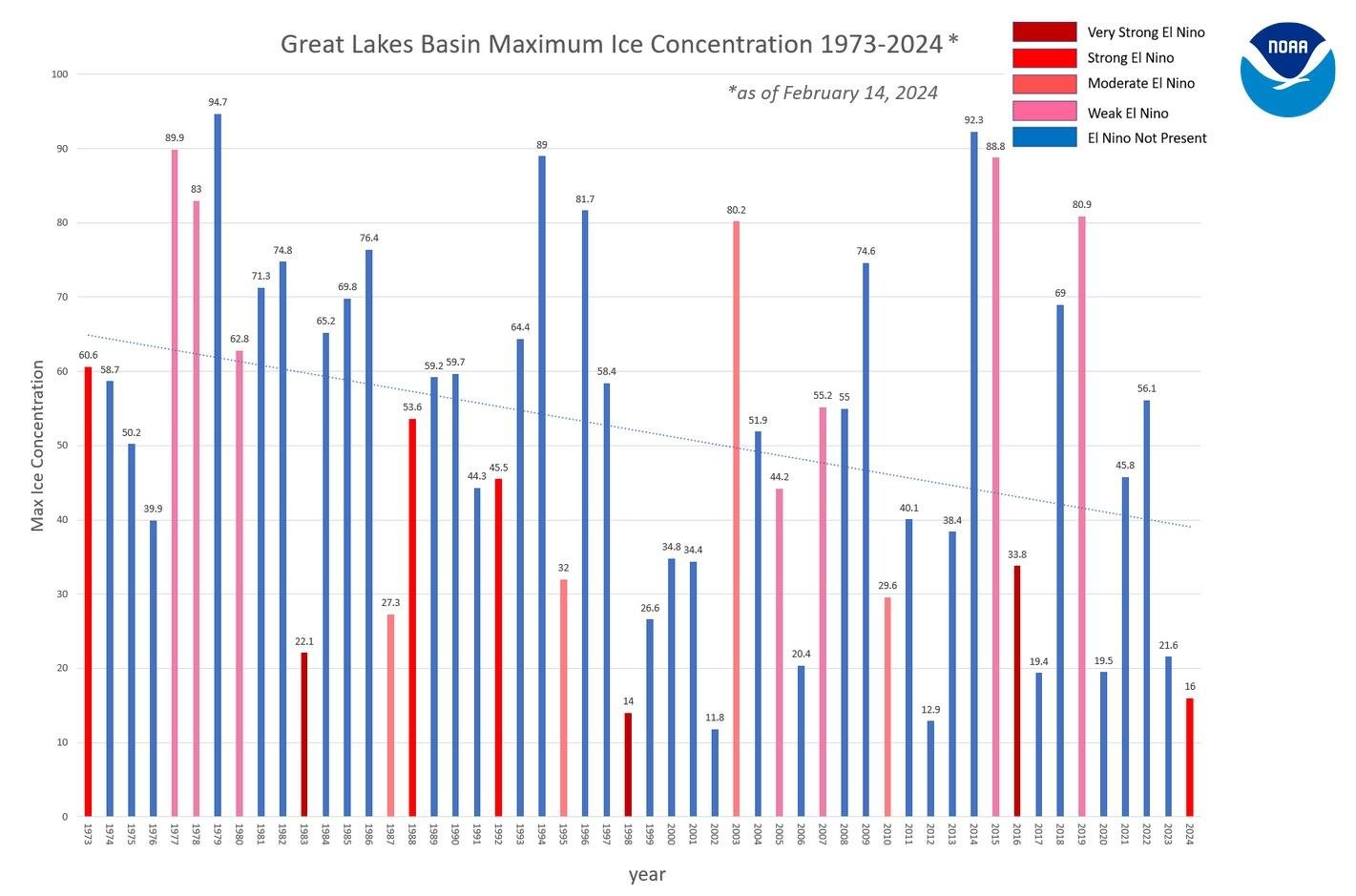 (Courtesy of NOAA)
(Courtesy of NOAA)
“The way that we like to interpret and look at our data, especially when we’re thinking about climate, is for multi-decadal periods,” Young said, and for the past 50 years, ice has been decreasing about 5% per decade, for a 25% total decrease.
During that same period, the length of the ice season has decreased by approximately 27 days on average.
What does that mean for the Great Lakes in terms of impacts on wildlife, shoreline erosion or human activity?
Too soon to tell, Young said. “This is an active area of research.”
The message for the public, she said, is that while 2024 won’t be predictive of 2025, decision makers should take into account the overall trends evident in 50 years of monitoring data.
Shipping companies, for example, may be able to run models that show what their operations could look like if they didn’t have to shut down during the winter, Young said, while lakefront communities might want to rethink recreation built around ice fishing.
“You should have that mindset of understanding the variability but then also the trends,” she said.
Contact Patty Wetli: @pattywetli | (773) 509-5623 | [email protected]


